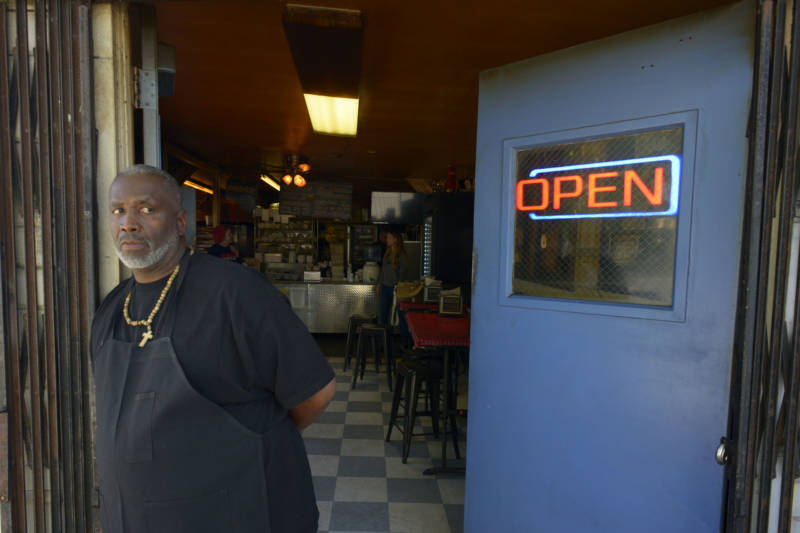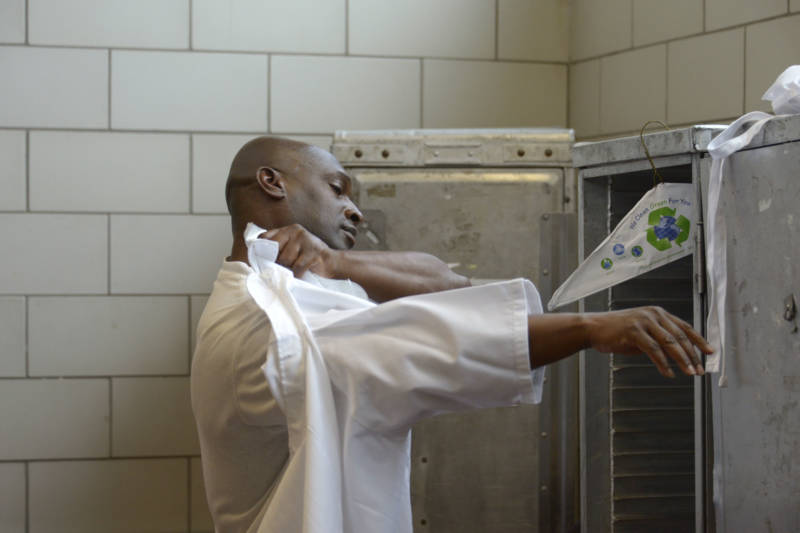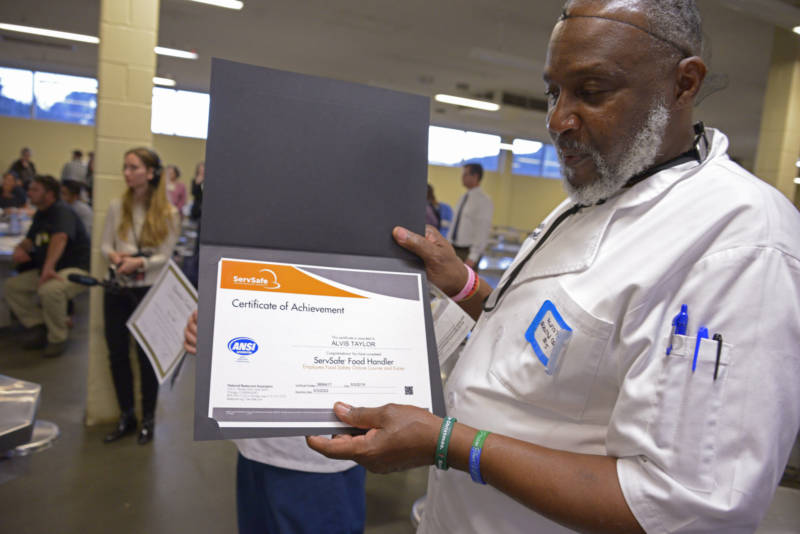Formerly incarcerated people who can’t find work within the first year of their release face a 52 percent chance of returning to prison. Those who do find work have a better chance of staying out.
“Coming out, it’s kind of hard having to ask people for a second chance,” said Joel McCarter, who was released from San Quentin State Prison in 2017. While serving time there, he enrolled in one of the many rehabilitation and transitional programs at the state prison — Quentin Cooks.
The 12-week culinary class teaches inmates kitchen and cooking skills. It also helps them get certified to work in the food service industry, so they can apply for jobs and work when they get out of prison. The program has held five 12-week sessions since it was started in 2016 by baker Helaine “Lainy” Melnitzer and Lisa Dombroski, who is a former chef. The two noticed a worker shortage in the Bay Area food industry, and thought a culinary training class for inmates could help.

“We need employment and people won’t judge them for their past and their tattoos,” said Melnitzer.
After going through the course, McCarter landed a job at Smoke Berkeley, a barbecue joint in the East Bay. He visited inmates at San Quentin recently during one of the program’s graduating dinner sessions to tell others about how he’s been able to transition with the program’s help.

“We don’t care about your past. As long as you’re able and willing to come to work, there’s a job for you,” he said. “They give everybody hope and let them know that we don’t have to go back to our crazy ways. There are other opportunities out there for us now.”


